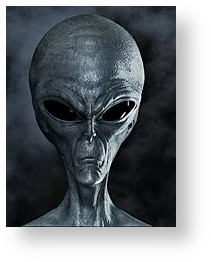earthlings.inSite21.com
An Intergalactic Report and Travel Advisory
Excerpts from Research Findings on Earthlings
October 13, 2025
An Intergalactic Report and Travel Advisory
Excerpts from Research Findings on Earthlings
October 13, 2025
The Christian View of their Origins
The Christian view of the origins of humanity is primarily based on the creation account described in the Bible, specifically in the book of Genesis. According to this belief:
1. Creation by God: Christians believe that God is the creator of the universe, including all living beings, and that He intentionally brought human beings into existence.
2. Creation of Adam and Eve: The Genesis account states that God created the first human beings, Adam and Eve, in His own image and likeness. They were placed in the Garden of Eden, a paradisiacal environment.
3. Special Creation: Christians generally believe in the concept of "special creation," meaning that each species, including humans, was created directly by God and did not evolve from common ancestors.
4. The Fall: The Genesis narrative also includes the story of Adam and Eve's disobedience to God, known as "The Fall." They ate the forbidden fruit from the Tree of Knowledge of Good and Evil, leading to the introduction of sin and the consequent broken relationship between humanity and God.
5. Original Sin: As a result of The Fall, Christians believe that all subsequent generations inherited a sinful nature, which separates humanity from God and requires redemption.
6. Redemption through Jesus Christ: According to Christian theology, God sent His son, Jesus Christ, to Earth to offer salvation and reconcile humanity with God. Through His death and resurrection, Jesus provides the means for forgiveness of sins and eternal life.
It's essential to note that various Christian denominations may interpret these beliefs differently, and some may be more open to accommodating scientific theories such as evolution while still holding onto the core principles of divine creation and the belief in a historical Adam and Eve. The relationship between religious teachings and scientific understanding continues to be a topic of discussion and interpretation among different Christian communities.

-------- Contents --------
---- Sapiens ----
---- Travel Advisory ----
---- Are you the problem? ----
The Christian view of the origins of humanity is primarily based on the creation account described in the Bible, specifically in the book of Genesis. According to this belief:
1. Creation by God: Christians believe that God is the creator of the universe, including all living beings, and that He intentionally brought human beings into existence.
2. Creation of Adam and Eve: The Genesis account states that God created the first human beings, Adam and Eve, in His own image and likeness. They were placed in the Garden of Eden, a paradisiacal environment.
3. Special Creation: Christians generally believe in the concept of "special creation," meaning that each species, including humans, was created directly by God and did not evolve from common ancestors.
4. The Fall: The Genesis narrative also includes the story of Adam and Eve's disobedience to God, known as "The Fall." They ate the forbidden fruit from the Tree of Knowledge of Good and Evil, leading to the introduction of sin and the consequent broken relationship between humanity and God.
5. Original Sin: As a result of The Fall, Christians believe that all subsequent generations inherited a sinful nature, which separates humanity from God and requires redemption.
6. Redemption through Jesus Christ: According to Christian theology, God sent His son, Jesus Christ, to Earth to offer salvation and reconcile humanity with God. Through His death and resurrection, Jesus provides the means for forgiveness of sins and eternal life.
It's essential to note that various Christian denominations may interpret these beliefs differently, and some may be more open to accommodating scientific theories such as evolution while still holding onto the core principles of divine creation and the belief in a historical Adam and Eve. The relationship between religious teachings and scientific understanding continues to be a topic of discussion and interpretation among different Christian communities.

-------- Contents --------
---- Sapiens ----
---- Travel Advisory ----
---- Are you the problem? ----